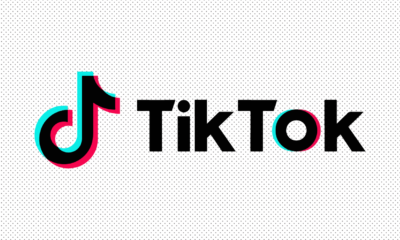General
Emerging Workforce Trends: Shaping the Future of Work in Australia


The pandemic’s long-term repercussions on the world economy. Interventions and events take place on different continents. Increasing interest rates and inflation in the US and other major economies. Workforce Australia is familiar with these labor trends, which successfully translate to and impact other markets.
Australia’s economy is linked to international markets. Furthermore, while an economic recession may not necessarily strike Australia, there is a chance that we will have an earnings recession. Component scarcities are no longer the only factor limiting inflation. It has even impacted the general cost of goods, which has raised demands for pay increases. This indicates that earnings must keep up with the rising goods expenses and employee wage requirements. These impacts are already evident in our markets: businesses are downsizing to meet revenue targets, and demand has slowed down.
Gig Economy Growth:
The gig or freelance economy, characterized by short-term contracts and freelance gigs, is experiencing rapid growth in Australia. Platforms offering gig opportunities in sectors such as transportation, food delivery, and freelance services have increased, providing flexibility and autonomy to workers. However, concerns about job security, income stability, and worker rights have prompted debates around regulatory frameworks and social protections for gig workers.
Skills in Demand:
Technological advancements and digitalization drive demand for data analytics, artificial intelligence, cybersecurity, and digital marketing skills. As businesses prioritize innovation and automation, individuals with technical proficiency and adaptability are sought after in the job market. Additionally, soft skills such as communication, creativity, problem-solving, and emotional intelligence are increasingly valued as organizations recognize their importance in driving collaboration and resilience.
Diversity & Inclusion Imperative:
Inclusion and diversity are not just trending topics but crucial components of a thriving part of the workforce Australia. Employers are prioritizing diversity initiatives to foster a culture of belonging and harness the benefits of diverse perspectives. This includes initiatives to increase the representation of women, indigenous peoples, people with disabilities, LGBTQ+ individuals, and people from diverse cultural backgrounds in the workplace.
Workforce Australia’s Upskilling and Reskilling:
As job roles evolve and new technologies keep coming up, continuous learning and skills development have become imperative for staying competitive in the job market. Employers are investing in workforce upskilling and reskilling programs to bridge skill gaps and adapt to changing industry needs. Similarly, individuals proactively seek lifelong learning opportunities through online courses, certifications, and vocational training programs.
Flexible Work Arrangements:
Flexibility in work arrangements, including flexible hours, part-time work, job sharing, and compressed workweeks, is becoming increasingly prevalent. Employers are recognising the necessity of work-life balance and offering flexible arrangements to accommodate the diverse needs of their workforce. Flexible work arrangements enhance employee satisfaction and productivity and contribute to employee retention and talent attraction.
Remote Learning & Development:
The rise of remote work has also catalyzed a shift towards remote learning and development opportunities. Online learning platforms, virtual classrooms, and digital training modules have become essential tools for organizations seeking to upskill and reskill their workforce remotely. This trend will persist as businesses embrace hybrid work models and prioritize remote-friendly learning solutions.
Embrace of Artificial Intelligence & Automation:
Artificial intelligence (AI) and automation technologies are revolutionizing the workplace, streamlining processes, and augmenting human capabilities. Businesses leverage AI for data analysis, customer service, and predictive maintenance, increasing efficiency and productivity. While AI offers various benefits, it also presents challenges, like job displacement and the need for workforce reskilling. Companies are embracing AI responsibly, prioritizing ethical AI practices, and investing in employee training to ensure a smooth transition to AI-powered workflows.
Focus on Sustainable & Purpose-Driven Work:
There is a growing emphasis on sustainability and corporate social responsibility (CSR) in the workforce, driven by consumer demand for ethical and environmentally friendly products and services. Employees seek employers prioritizing sustainability initiatives, diversity, and community engagement. Businesses are integrating sustainability into their corporate strategies, aligning their values with those of their employees and customers. By adopting sustainable steps and fostering a sense of purpose, organizations can attract and retain top talent while positively impacting society and the environment.
Strategies for the Workforce Australia must Address Future Expectations
With its historically low unemployment rate, shifting cultural views on labor, and economic challenges, Australia is undoubtedly undergoing a lot of change. We know organizations must adopt a strategic and forward-looking strategy to work completion due to a skills shortage affecting all sectors. Effective data utilization is crucial for detecting misclassification-related compliance concerns and cost savings opportunities. The ability of workforce business partners to make more sophisticated workforce decisions specifically, shifting the focus from “Who do I need to hire?” to “How can I get the work done?” will be made possible by intelligent workforce platforms.
Conclusion:
As Australia navigates the complexities of the modern workforce, understanding and adapting to emerging trends is essential for individuals, businesses, and policymakers. By embracing remote work, fostering diversity and inclusion, investing in skills development, and prioritizing flexibility, Australia can shape an inclusive, resilient, and sustainable future of work.



 General2 months ago
General2 months agoWhat Is Smart Construction? A Beginner’s Guide



 Technology1 month ago
Technology1 month agoHow to Send WooCommerce SMS Notifications for Orders





 Technology1 month ago
Technology1 month ago7 Essential TikTok Metrics to Track for Higher TikTok Views in 2025

 Model3 weeks ago
Model3 weeks agoTiffany Stratton: Biography, Wiki, Age, WWE Career, Net Worth, Before Fame, Boyfriend



 Technology4 weeks ago
Technology4 weeks agoTop 5 Tips for Using File Uploads in Your WooCommerce Store Efficiently

 Technology3 weeks ago
Technology3 weeks agoWhy Airlines Are Using Virtual Reality Services for Pilot Training



 General4 weeks ago
General4 weeks agoThe Hidden Costs of a DUI & How a Lawyer Can Help You Avoid Them





 Technology3 weeks ago
Technology3 weeks agoExploring TikTok AI: My Experience Making a Video With Only Artificial Intelligence




You must be logged in to post a comment Login